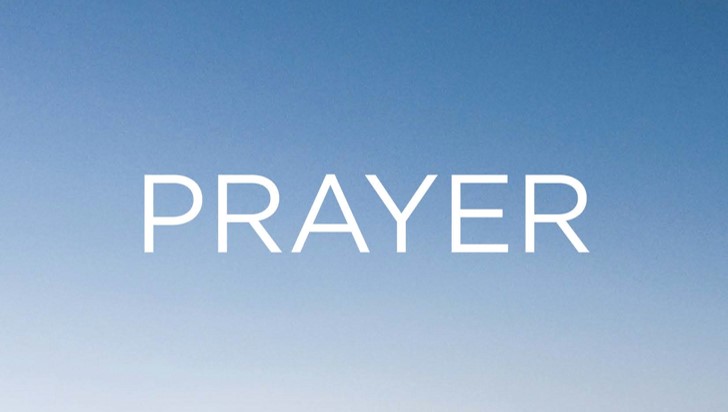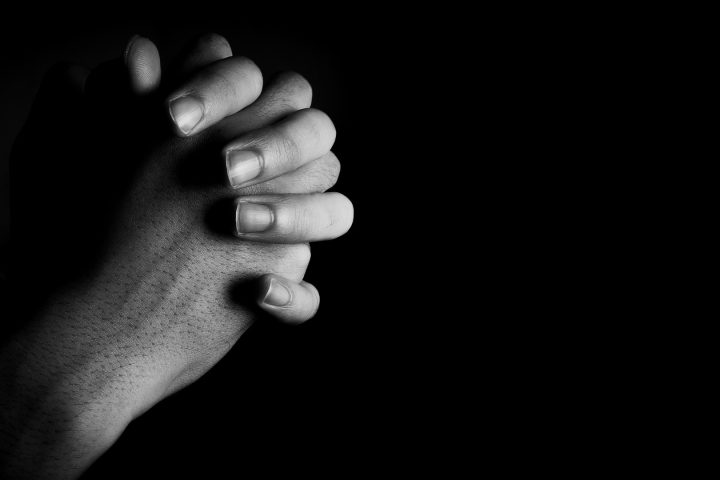“Behold, I stand at the door and knock: if any man hear my voice and open the door, I will come in to him, and will sup with him, and he with me” (Rev. 3:20).
I doubt that I know of a passage in the whole Bible which throws greater light upon prayer than this one does. It is, it seems to me, the key which opens the door into the holy and blessed realm of prayer.
To pray is to let Jesus come into our hearts.
This teaches us, in the first place, that it is not our prayer which moves the Lord Jesus. It is Jesus who moves us to pray. He knocks. Thereby He makes known His desire to come in to us. Our prayers are always a result of Jesus’ knocking at the door of our hearts.
This throws new light upon the old prophetic passages: “Before they call, I will answer; and while they are yet speaking, I will hear” (Isaiah 65:24). Yea, verily, before we call, He graciously makes known to us what gift He has decided to impart to us. He knocks in order to move us by prayer to open the door and accept the gift which He has already appointed for us.
From time immemorial prayer has been spoken of as the breath of the soul. And the figure is an excellent one indeed.
The air which our body requires envelopes us on every hand. The air of itself seeks to enter our bodies and, for this reason, exerts pressure upon us. It is well known that it is more difficult to hold one’s breath than it is to breathe. We need but exercise our organs of respiration, and air will enter forthwith into our lungs and perform its life-giving function to the entire body.
The air which our souls need also envelopes all of us at all times and on all sides. God is round about us in Christ on every hand, with His many-sided and all-sufficient grace. All we need to do is to open our hearts.
Prayer is the breath of the soul, the organ by which we receive Christ into our parched and withered hearts.
He says, “If any man open the door, I will come in to him.”
Notice carefully every word here. It is not our prayer which draws Jesus into our hearts. Nor is it our prayer which moves Jesus to come in to us.
All He needs is access. He enters in of His own accord, because He desires to come in. And He enters in wherever He is not denied admittance.
As air enters in quietly when we breathe, and does its normal work in our lungs, so Jesus enters quietly into our hearts and does His blessed work there.
He calls it to “sup with us.”
In Biblical language the common meal is symbolical of intimate and joyous fellowship. This affords a new glimpse into the nature of prayer, showing us that God has designed prayer as a means of intimate and joyous fellowship between God and man.
Notice how graciously prayer has been designed.
To pray is nothing more involved than to let Jesus into our needs. To pray is to give Jesus permission to employ His powers in the alleviation of our distress. To pray is to let Jesus glorify His name in the midst of our needs.
The results of prayer are, therefore, not dependent upon the powers of the one who prays. His intense will, his fervent emotions, or his clear comprehension of what he is praying for are not the reasons why his prayers will be heard and answered. Nay, God be praised, the results of prayer are not dependent upon these things!
To pray is nothing more involved than to open the door, giving Jesus access to our needs and permitting Him to exercise His own power in dealing with them. He who gave us the privilege of prayer knows us very well. He knows our frame; He remembers that we are dust.
That is why He designed prayer in such a way that the most impotent can make use of it. For to pray is to open the door unto Jesus. And that requires no strength. It is only a question of our wills. Will we give Jesus access to our needs? That is the one great and fundamental question in connection with prayer.
When Israel had sinned against the Lord in the wilderness, He sent among them exceedingly fiery serpents. In their distress the people humbled themselves and cried to God for mercy. And the Lord had mercy upon His rebellious people. But He did not take away the serpents. What He did was to tell Moses to raise up a serpent of brass in the midst of the camp, that all might see it. And He ordained it so in His mercy that they who had been bitten by the serpents needed but to turn and look unto the serpent of brass, and they would be given the power which would heal them from the death-dealing poison of the serpents’ bites.
This was indeed a gracious ordinance. By this all could be saved if they so willed. If the Lord had ordained that those who had been bitten by the serpents must drag themselves over to the serpent of brass and touch it, most of them would never have been saved, because the poison took effect almost immediately, and those who had been poisoned were unable to walk more than a few steps. All that was required of them was to turn their heads, look unto the serpent of brass, and they would be healed!
Just so has the Lord in mercy ordained help also for the serpent-bitten Israel of the New Covenant: “And as Moses lifted up the serpent in the wilderness, even so must the Son of man be lifted up; that whosoever believeth may in him have eternal life” (John 3:14-15).
No matter in what distress we may be, distress of body or of soul, we need but look unto Him who is always near with that healing power which can immediately overcome the death-dealing poison of sin and its terrible consequences both to body and soul.
To pray is nothing more involved than to lift the eye -of prayer unto the Savior who stands and knocks, yea knocks through our very need, in order to gain access to our distress, sup with us and glorify His name.
Let us think of patients who are ill with tuberculosis.
The physicians put them out in the sunlight and fresh air, both in summer and in winter. There they lie until a cure is gradually effected by the rays of the sun. The recovery of these patients is not dependent upon their thinking, in the sense of understanding the effect of the sun’s rays or how these rays work. Neither does their recovery depend upon the feelings they experience during the rest cure.
Nor does it depend upon their wills in the sense of exerting themselves to will to become well. On the contrary, the treatment is most successful if the patients lie very quietly and are passive, exerting neither their intellects nor their wills. It is the sun which effects the cure. All the patients need to do is to be in the sun.
Prayer is just as simple.
We are all saturated with the pernicious virus of sin; every one of us is a tubercular patient doomed to die! But “the sun of righteousness with healing in its wings has arisen.” All that is required of us, if we desire to be healed both for time and for eternity, is to let the Son of righteousness reach us, and then to abide in the sunlight of His righteousness.
To pray is nothing more involved than to lie in the sunshine of His grace, to expose our distress of body and soul to those healing rays which can in a wonderful way counteract and render ineffective the bacteria of sin. To be a man or woman of prayer is to take this sun-cure, to give Jesus, with His wonder-working power, access to our distress night and day.
To be a Christian is in truth to have gained a place in the sun!
Permit me to use still another illustration to show how simple the Lord has made prayer. The man sick of the palsy, mentioned in the second chapter of Mark, had some very good friends. They knew that Jesus could help him. So they carried him to the house where Jesus was. But they could not get in because of the multitude. Undaunted, they lifted the sick man to the roof, made a hole in it and lowered him to the very feet of Jesus.
There these good friends undoubtedly stood and waited for the authoritative word from Jesus by which their sick friend would immediately become well. But, strange enough, no such word was forthcoming from Jesus. Instead they heard these words spoken with authority: “Son, thy sins are forgiven!”
Another prayer had been crying louder to Jesus. It was the sick man’s plea for the forgiveness of sins. And yet he had not spoken one word to Jesus. He was lying quietly on his bed. It is easy for me to think that he lay there looking to Jesus, only looking to Jesus.
And Jesus heard the unuttered prayer for the forgiveness of sins which arose from the sick man’s heart. And He answered this prayer first. Afterward He answered the other prayer also and restored the man to physical health.
This helps us to get a little deeper insight into the secret of prayer.
Prayer is something deeper than words. It is present in the soul before it has been formulated in words. And it abides in the soul after the last words of prayer have passed over our lips.
Prayer is an attitude of our hearts, an attitude of mind. Prayer is a definite attitude of our hearts toward God, an attitude which He in heaven immediately recognizes as prayer, as an appeal to His heart. Whether it takes the form of words or not, does not mean anything to God, only to ourselves.
This is an excerpt from chapter 1 of the book “Prayer” by Ole Hallesby.

CLICK HERE for more information on this book.




